Around 230,000 people live in 95 villages on the periphery of W National Park. Agricultural expansion has massively increased over the last 20 years with 5% of savannah and forest lost to agriculture on the edge of the park. Regional transhumance presents additional challenges with an influx of people travelling from Mali, Burkina Faso, and Niger with their livestock.
Managing these challenges requires close collaboration with local communities. A livestock management plan has defined two pastoral zones in the buffer zone around the park with input from local leaders to alleviate agricultural pressure. Environmental awareness has been developed through positive community engagement, enterprise initiatives have been supported, and infrastructure improved.
Community Engagement
Through the livestock management plan, 60 Eco-Tango team members have been locally employed to move in and around the park to engage herders on grazing access and to help conserve the core 3,000 km² area of the park which was kept largely livestock-free. In addition, almost 45,000 cattle have been vaccinated helping 1,178 breeders and as part of the livestock health support plan to reduce the risk of disease transmission from domestic animals to wildlife.
Trained community facilitators have been employed to raise awareness of the park and wildlife conservation. Through organised community meetings over 30,000 people have been reached to improve communication and the understanding of community needs.
With agricultural encroachment being a major threat, in 2021, a 124 km road was constructed in the southern part of the park demarcating the boundary, with agreements signed with local authorities to adhere to the limits
Education and Environmental Awareness
Over 500 schoolchildren have benefited from donations of school kits and 7 schools have benefited from donations of teaching materials since 2020. Nearly 6,000 school children have been reached through environmental education programmes and wildlife clubs.
Sustainable Enterprise Development
Sustainable enterprise initiatives in 2022 saw over 500 litres of honey produced by 81 beekeepers, 2,750 litres of shea pulp harvested, more than 3,000 kg of baobab fruit collected by women, and over 17 tonnes of fish caught for market – all directly benefitting the communities.
Community Infrastructure Development
In 2022, at the request of local authorities, the 50 000m3 Community Guene dam, on which the community is highly dependent for their daily water needs, was rehabilitated. Close to the dam, a fodder plot covering 1 ha of Panicum plants, was developed to support grazing rehabilitation around the park, as part as the livestock management plan.
